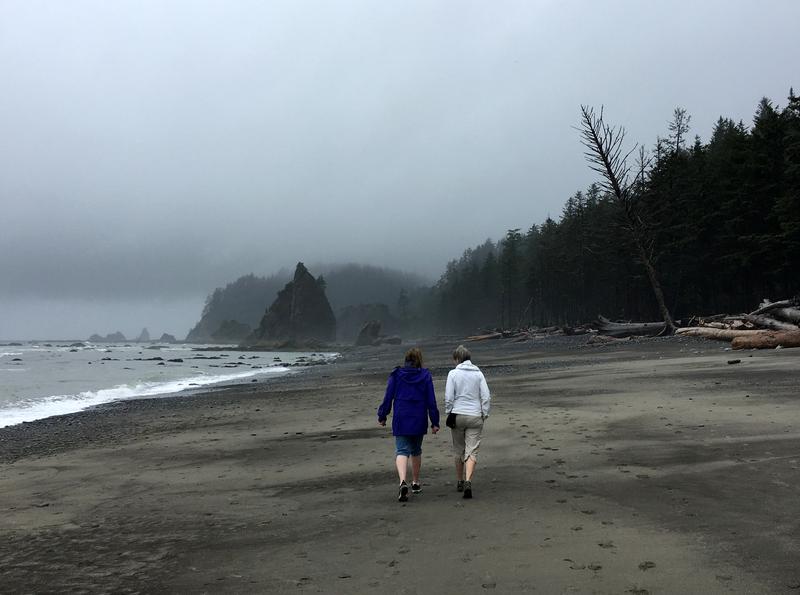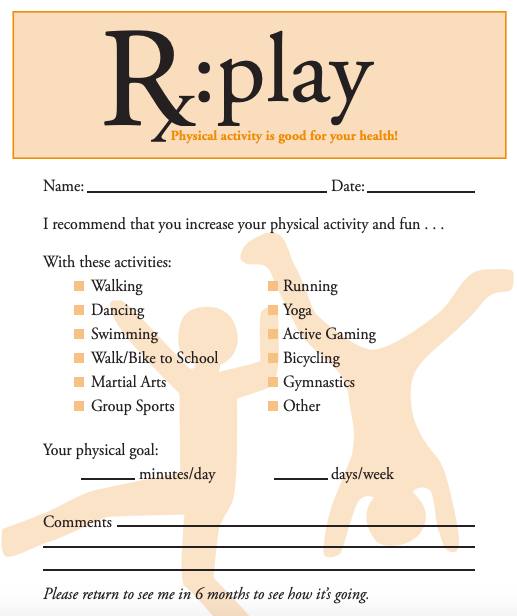
A Walk In The Park Is (Literally) Just What The Doctor Ordered
Read On
Dozens of Pacific Northwest doctors are teaming up with a national nonprofit to write a different kind of prescription. Their “park prescriptions” direct patients with obesity, anxiety, depression or certain chronic conditions to spend more time outside.
Physicians already routinely counsel patients to exercise more, as you may know from personal experience. This takes it one step further — by writing actual prescriptions specifying how long and how often to recreate in named parks. Dr. Atoosa Kourosh, a pediatrician and allergist in Seattle, said a written prescription makes a stronger impression.
“If you do that, then people take it more seriously that you’ve told them to get outside and be active,” Kourosh said in an interview.
Kourosh is one of 63 health care providers in Washington state and 12 in Oregon who have signed up with the nonprofit Park Rx America to “prescribe” parks. Washington State Parks recently joined the national group, which provides clinicians a template to prescribe nearby green spaces with address and amenity details.
Nature immersion could be suitable to treat a range of conditions in children and adults, says Kourosh and the state parks department. Obesity gets frequent mention, as well as hypertension, diabetes and attention deficit disorder.
“Children with both attention problems, behavioral problems and psychological problems seem to very much benefit from these experiences,” Kourosh said.
She said patient reactions to getting a park prescription tend toward “delight,” although she also has seen some skepticism.
“Most of the time they like the idea that you are giving them something they can do that is inexpensive and fun and that can benefit their health,” the pediatrician said.
Kourosh said in some cases the nature prescription replaces traditional pills during the summer season when outdoor time can be more plentiful.

A sample prescription form used in 2010 by health care providers in a forerunner project in the Portland area. Click image to enlarge. CREDIT RX PLAY / VIA OREGON PARKS AND RECREATION DEPARTMENT
“I have seen several cases where they were able to come off of their ADHD medications,” Kourosh said. “We can definitely see they are happy and functional without their medications, these children.”
Park Rx America is giving a renewed push to and formalizing a movement that has circulated in the public health field for a long time. Ten years ago, four health care organizations in the Portland area teamed up with Portland Parks and Recreation on a non-drug prescription project they dubbed “Rx Play.” The project tested if clinicians could channel overweight children ages 6-12 into parks and recreation exercise activities.
Rx Play was not extended when the pilot phase ran out. The project was termed a “modest” success in a final report published in 2011. One issue was that it drew limited participation and follow-through by patient families.
Park Rx America says dozens of medical studies support the health benefits of being out in nature. The organization says outdoor activity improves mental and physical well-being, and decreases anxiety and negative thinking. Park Rx America formed in 2017 as an outgrowth of a local initiative to encourage nature therapy in the nation’s capital.
Washington State Parks Communications Manager Sandy Mealing said her agency joined the national group because the push to get people outside aligns with a state strategic goal.
“It is one of our primary goals to create healthy communities,” Mealing said Friday, in an interview with public radio.
She said park prescriptions could definitely help to increase visitation at state parks, “but that wasn’t a primary goal.”
The state parks department is currently seeking to increase the number of health care providers involved.
“You don’t have to be a physician, that’s an important distinction,” Mealing said. “You can also be a mental health care provider, a nurse practitioner, massage therapist, chiropractor, or yoga provider. Anyone in the health care industry can be a part of this program.”
She said the agency also is working with health care organizations to see if there is some way they could subsidize Discover Passes, which cover the day-use fees charged at many Washington state parks.
Related Stories:

Federal funding cuts, freezes hit Palouse nonprofits
Palouse area nonprofits focused on helping with emergency food and the arts have had their funding frozen or cut.

Why affordable housing providers say they’re facing an ‘existential’ crisis
Affordable housing providers across the Northwest have been contending with rising insurance premiums — and, in some cases, getting kicked off their plans altogether.

Pacific Northwest author’s new novel captures atmosphere of the region
On a gray, early spring morning, I drove to Steilacoom, Washington, to catch the ferry to Anderson Island. I boarded alongside the line of other cars and after parking, stepped out onto the deck of the boat. The ferry pushed off from the dock and rocked a little in the Puget Sound before steadying.
I took this journey to the real Anderson Island to see from the water what inspired Northwest author Kirsten Sundberg Lunstrum’s new novel, “Elita,” which was published earlier this year. Sundberg Lunstrum was inspired while sailing around the Puget Sound to write a mystery novel on an island.
Sundberg Lunstrum read excerpts of the book at a gathering at Tacoma’s Grit City Books.












